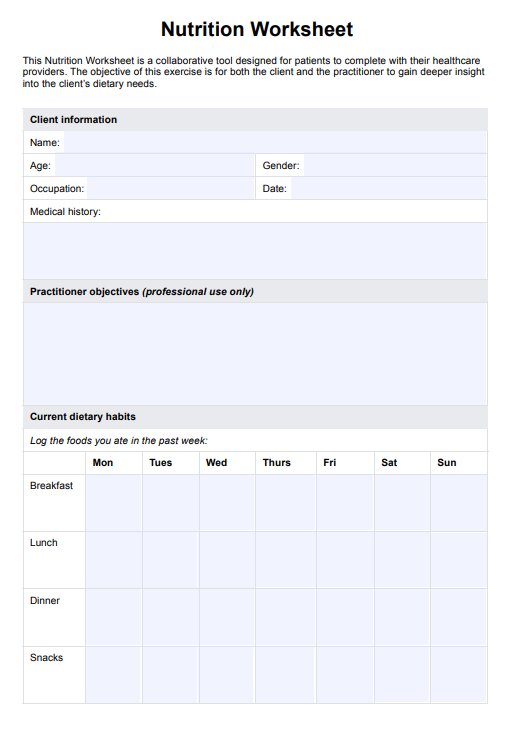A Nutrition Worksheet is a tool for tracking and analyzing a client's food intake and habits for better client management. It helps practitioners transition clients from receiving supported nutrition advice to being able to maintain healthy eating independently.

Nutrition Worksheet
Optimize your client's engagement in their dietary health with this free Nutrition Worksheet, a valuable resource for improving nutrition choices.
Nutrition Worksheet Template
Commonly asked questions
Dieticians, nutritionists, physicians, and other healthcare providers may find the Nutrition Worksheet beneficial for clients with diverse needs. These might include those wishing to lose or gain weight, athletes or clients with a demanding physical activity regimen, or those struggling to maintain adequate nutrition due to psychological, biological, or lifestyle factors.
This worksheet includes sections for client information, meal and snack intake and timing, nutrient intake, setting goals, specialized professional advice, and progress tracking.
EHR and practice management software
Get started for free
*No credit card required
Free
$0/usd
Unlimited clients
Telehealth
1GB of storage
Client portal text
Automated billing and online payments











